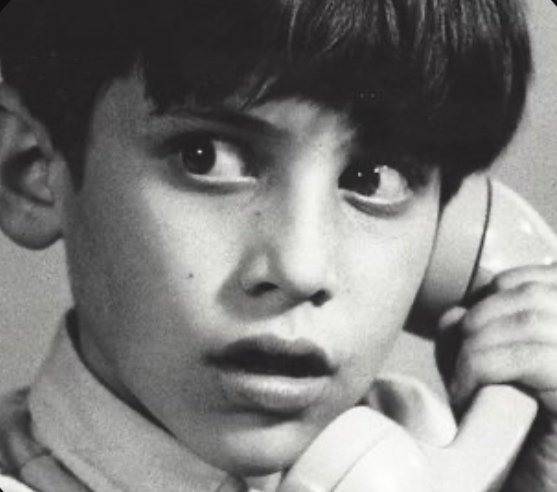Crimea and the Hysteria of History
/Well, that was fast. At the beginning of the year, it seemed apt to meditate on the catastrophes of a century past, and on the chance that we might, once again, be passengers on some Titanic of history, with a small flaw in the hull opened by some unforeseen iceberg. And it seemed worth stressing that what had brought the ship down—in short, what made 1914 happen—was, above all, the vulnerability of open societies to the panicked appeal to honor and the fear of humiliation. “The relentless emphasis on shame and face, on position and credibility, on the dread of being perceived as weak sounds an icy note through the rhetoric of 1914—from the moment Franz Ferdinand is shot to the moment the troops are sent to the Western Front,” I wrote in the magazine. “When someone says, ‘Ram the iceberg! We can’t afford to let it make us look weak,’ it’s time to run for the deck.”
And here we are, chilly breezes blowing indeed. With Ukraine and Crimea suddenly looming as potential Sarajevos, the usual rhetoric of credibility and the horrors of appeasement comes blaring from the usual quarters. People who, a week ago, could not have told you if Crimea belonged to Ukraine—who maybe thought, based on a vague memory of reading Chekhov, that it was Russian all along—are now acting as though the integrity of a Ukrainian Crimea is an old and obvious American interest. What they find worse than our credibility actually being at stake is that we might not act as though it always is. The ins and outs, the explication of Ukrainian specificities—the expulsion of the Crimean Tatars, Khrushchev’s gift of Crimea to Ukraine in 1954—must be left to those who know them. But certain historical continuities appear at once to anyone with a memory of history’s grosser follies.
Russia, as ugly, provocative, and deserving of condemnation as its acts may be, seems to be behaving as Russia has always behaved, even long before the Bolsheviks arrived. Indeed, Russia is behaving as every regional power in the history of human regions has always behaved, maximizing its influence over its neighbors—in this case, a neighbor with a large chunk of its ethnic countrymen.
In response, we should be doing what sane states should always be doing: searching for the most plausible war-avoiding, nonviolent arrangement, even at the cost of looking wishy-washy. If we transfer the complexities of Ukraine to somewhere we know better—imagine French-speaking Quebec nationalists insisting on ousting a government with a large Anglophone-Canadian contingent—we may see that the simple view is likely to sink a ship with a lot of passengers. The parallel with the failure of appeasement in the thirties is false, because that circumstance was so particular to its moment. The underlying truth then was that there was no point in appeasing Hitler because there was no possibility of appeasing him. The German Army was the most powerful force in Europe, indeed, in the world, and Hitler had long before decided on a general European war. He wanted one, and for him it was only a question, at best, of delaying it until his odds were marginally better. If Putin wants a general European war, we will know it when he invades a NATO nation. There is no shortage of real trip wires in the region, and no need to discover new ones.
One should be similarly skeptical about the eager talk of a renewed Cold War. The point of the Cold War, at least as it was explained by the Cold Warriors, was that it wasn’t a confrontation of great global powers but, rather, something more significant and essential: a struggle of values, waged on a global scale, between totalitarians and liberals. Russia as a nation was incidental—if the Soviets had given up Marxism and on the utopian (or dystopian) remaking of the world, and had been content to act as a regular power, we would have had no war, cold or hot. That, anyway, was what the Cold Warriors claimed—indeed, those who saw Soviet ideology as mere Russian behavior were regarded as historically naïve. And here we are, with a restored Russia, paranoid about encirclement, increasing their leverage in the neighborhood. It may be ugly and it may be wrong, and Ukraine deserves the moral support that small nations always deserve when they are bullied—but it is also historically normal. If we become hysterical every time historical forces assert themselves, there will be no end to the hysteria.
For a great many people, in the past and in the present, it is hard to resist the thrill of war fever, the excitement of “seriousness,” and the call of history—the romance of the iceberg even as it sinks the boat. The most shocking thing about the onset of the First World War, a century later, is how many intellectuals and ideologues—people we would now call pundits—were delighted by its arrival. As I’ve written, the intellectuals of 1914 didn’t want the moral equivalent of war; they wanted war as a way of driving out moral equivalence, of ending relativism and decadence and materialism. They exulted in the moral clarity of the coming confrontation after the debasing decades of bourgeois pleasures, and they welcomed the end of their long holiday from history.
We know the price they paid. The worst pretense of empire is that every rattle on the edges is a death knell to the center. This is absurd, and it is dangerous because it creates the kind of melodramatic hysteria that leads to self-slaughter. The pressures of modern life have led fourteen-year-old kids to no longer say to each other anything as extended as “calm down.” Now, in moments of potential panic, they just say, “Calm.” It’s sound advice. Calm.


